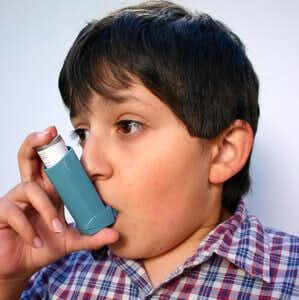
What can a parent do to reduce a child’s chance of asthma? Until recently, the only advice doctors had was obvious: don’t expose a baby or youngster to cigarette smoke. While that is still critical, Danish researchers have just published research on one other possible intervention. Mothers who took fish oil during pregnancy were less likely to have their babies develop asthma and wheezing.
What the Danish Scientists Did:
In the study, 736 pregnant women took either fish oil rich in omega-3 fatty acids or an olive oil placebo for the final three months of their pregnancies. The children who were born were followed up until they were three years old. Only 16.9% of those whose mothers took fish oil supplements had persistent wheezing. Nearly one-fourth (23.7%) of those whose mothers took the olive oil placebo were destined to develop asthma.
Women whose blood levels of omega-3 fatty acids were especially low at the beginning of the study got the greatest benefit. Those who took the placebo supplements had 34% of their youngsters with asthma by age three, compared to 17.5% of those who took fish oil.
The Family Tree:
Some of the parents had asthma themselves. About one-fourth of the mothers and one-fifth of the fathers had been diagnosed with the condition. Since it tends to run in families, those youngsters were at somewhat higher risk.
Should Pregnant Women Eat More Fish?
Low blood levels of omega-3 fatty acids could be related to people avoiding fish. Pregnant women may be steering clear of high-mercury fish like swordfish or tuna without realizing that they could safely consume smaller fish like sardines, mackerel, herring or salmon.
The current research, published in the New England Journal of Medicine, was not designed to show whether eating more fish would yield the same benefits. The researchers would like other scientists to duplicate their study and confirm the results. They say that would be necessary before a recommendation could be made that pregnant women start taking fish oil routinely.
New England Journal of Medicine, Dec. 29, 2016
Omega-3 fatty acids such as EPA (eicosapentaenoic acid) and DHA (docosahexaenoic acid) have powerful anti-inflammatory action. Since asthma is triggered by airway inflammation, these compounds could be helpful. It is intriguing that the effects were so long-lasting. Although the study was double-blind only until the children were three years old, some of the youngsters were followed up until they were seven.

